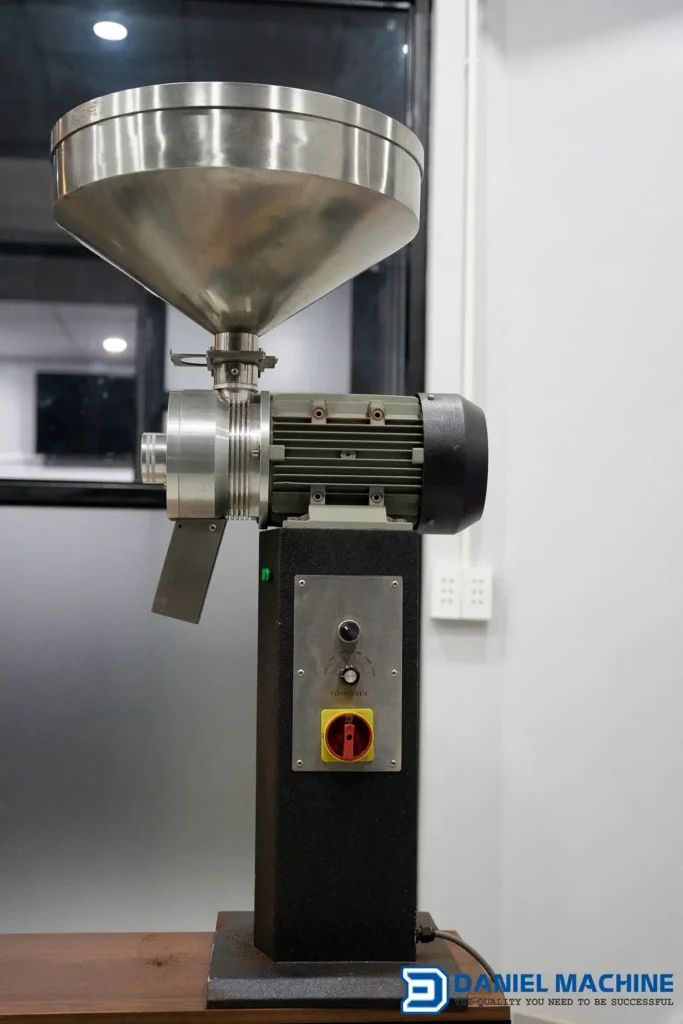Industrial Coffee Grinder: Choosing the Right Model for Your Business
Industrial Coffee Grinder: Choosing the Right Model for Your Business
Blog Article
Industrial Coffee Mill Guide: Increase Efficiency and High Quality
In the competitive landscape of coffee production, selecting the best industrial coffee grinder plays a critical function in improving both effectiveness and product high quality. Understanding the nuances of different grinder types and crucial attributes-- such as adjustable grind settings and durable building-- can significantly influence the final taste profile of the coffee.
Comprehending Grinder Types
When selecting a commercial coffee mill, comprehending the different types readily available is essential for optimizing both taste removal and operational efficiency. Both key kinds of grinders are blade mills and burr mills. Blade grinders utilize sharp blades that chop coffee beans right into inconsistent sizes, bring about irregular extraction and potentially unwanted flavors. While blade mills are usually extra suitable and budget friendly for small operations, they are usually not suggested for industrial usage.

Inevitably, selecting the ideal type of grinder is essential to keeping quality and effectiveness in coffee manufacturing, making it crucial for businesses to purchase high-quality burr grinders for ideal outcomes.
Secret Attributes to Consider
Choosing a commercial coffee mill calls for careful consideration of a number of vital features that can dramatically affect both efficiency and the total coffee experience. One of the primary facets to evaluate is the grinding device. Burr grinders are typically liked over blade mills, as they give a consistent grind size, which is vital for optimum removal and taste.
An additional crucial function is the grinder's capacity. A versatile grinder with several settings allows you to tailor the work dimension to different brewing approaches, boosting the coffee's taste profile.
Review the grinder's sound degree, especially in an active café or manufacturing environment, where extreme sound can be disruptive. Spending in a grinder that stabilizes these features can significantly boost both operational performance and the quality of see it here the coffee offered.
Optimizing Grinding Refine
To attain the ideal outcomes in coffee prep work, maximizing the grinding procedure is necessary. The grind size dramatically influences extraction, flavor, and overall quality of the made coffee.


In addition, keeping an eye on the grinding rate can optimize the process. Slower grinding usually produces less heat, preserving delicate tastes and aromas. Alternatively, much faster grinding may generate excessive heat, adversely affecting the coffee's quality.
Upkeep and Treatment Tips
Correct upkeep and treatment of industrial coffee mills are vital for making sure ideal performance and durability. Routine cleaning is the foundation of upkeep; deposit buildup can affect taste and grinding efficiency. It is advisable to cleanse the mill after each usage, wiping down the outside and removing any kind of coffee grounds from the burrs.
In addition, inspect the grinding burrs for damage. Plain burrs can endanger work uniformity, so they need to be changed as necessary. Industrial Coffee Grinder. Occasionally calibrating the grinder is also vital, as this keeps the preferred work size for numerous brewing approaches
Lubrication of relocating components should be executed according to the producer's requirements, as this reduces rubbing and prolongs the life of the equipment. It is important to use food-grade lubricants to make sure safety and security and compliance with health and wellness laws.
Finally, keep the grinder in a dry and steady atmosphere to avoid corrosion and corrosion. By adhering to these maintenance and treatment ideas, drivers can improve the efficiency of their industrial coffee grinders while making certain high-grade outcome and expanded functional life.
Return on Financial Investment Evaluation
Assessing the roi (ROI) for commercial coffee mills is more critical for organizations looking for to maximize their coffee manufacturing capacities. A detailed ROI evaluation aids establish the economic viability of purchasing high-grade mills, permitting businesses to weigh the preliminary costs versus possible gains.
Evaluate the acquisition rate of the mill, consisting of setup and any kind of needed alterations to existing infrastructure. High-performance grinders usually lead to minimized grinding time and increased throughput, which can significantly improve efficiency.
In addition, consider the impact on item high quality. Industrial Coffee Grinder. Superior grinders produce a more consistent work this page dimension, which can boost taste profiles and customer complete satisfaction, ultimately driving sales. By boosting the top quality of the end product, services can validate greater prices, resulting in raised earnings
Conclusion
In recap, an industrial coffee mill plays a critical function in improving both efficiency and product high quality within coffee manufacturing. Ultimately, the tactical financial investment in a reliable mill contributes substantially to enhanced revenue and competitiveness in the coffee sector.
In the competitive landscape of coffee production, choosing the right industrial coffee mill plays a pivotal role in boosting both performance and product quality. The two main kinds of mills are blade grinders and burr grinders. Within the burr mill category, there are flat burr grinders and conelike burr grinders, each with its advantages. Burr grinders are typically preferred over blade mills, as they provide a consistent work size, which is essential for ideal extraction and flavor.
In summary, a commercial coffee grinder plays a pivotal duty in boosting both effectiveness and item top quality within coffee production.
Report this page